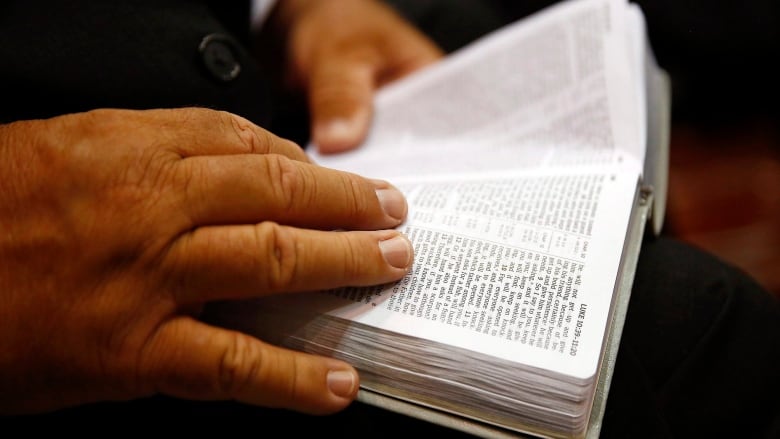'A church-shaped hole': Winnipeg filmmaker takes viewers on journey into life after faith
Film focuses on non-believing clergy who continue preaching

What happens when preachers stop believingand what happens when atheists miss church?
A new film by Winnipeggers Leslea Mair and Leif Kaldor takes viewers into the lives of people longing for the connections that religion can bring, but without the faith that ties traditional communities together.
The film Losing Our Religionmakes its Canadian premiere at Winnipeg's Cinemathequeon Saturday.
It focuses on three people who are still on the pulpit but no longer believe in God, and can't be open about their beliefs. Two of them are in the American Deep South and one lives in the Pacific northwest, and they talk about experiences and the moral deals they make with themselves to get through the day and still do their jobs.
"The really interesting thing to me was whether you believe or not, these people are still ministers. It's like, they stopped believing in God, but their whole lives still revolve around ministering to other people," saidMair in an interview on CBC Radio's Weekend Morning Show.
Most of the people Mair talked to didn't lose their faith all at once, but gradually over time as they encountered people in crisis and grappled with inconsistencies they saw in the Bible.
"It was the death of a thousand unanswered prayers," said Mair.
Despite the erosion of their own religious beliefs, the film's subjects continue to do the work of a minister.
"They don't want to hurt anyone else's faith. They're not going in there and saying, 'It's all a sham and I think you should stop believing too,'" said Mair.
"To lose one's faith was a traumatic experience,and the more fundamentalist the believer, the more traumatic the experience was, because it was like losing a loved one. It was like losing an intimate friend, a father figure in a lot of ways."
There's going to be a church-shaped hole in the world that needs filling.- Leslea Mair, director of
The consequences for clergy who stop believing can be severe. They face ostracization from their communities and the breakup of their marriages and families, not to mention the loss of their jobs.
The film explores The Clergy Project, an online community funded by the Richard Dawkins Foundation where non-believing clergy members can talk to each other.
One of the non-believing ministers Mair talked to asked if he could introduce her to his wife, who remained part of the church.
"She became such a strong character in the film because what I found out that I had in that first meeting was two people going on different journeys and they're doing it hand in hand."
After leaving their churches, some ministers go on to form humanist communities that function much like religious communities, holding weekly gatherings, as well as weddings and funerals.
Mair says there's a need for secular communities as younger generations believe less in traditional faiths. "There's going to be a church-shaped hole in the world that needs filling."
The documentary premieres Saturday at Cinematheque at 3 p.m. and 7 p.m.












_(720p).jpg)


 OFFICIAL HD MUSIC VIDEO.jpg)
.jpg)



























































































